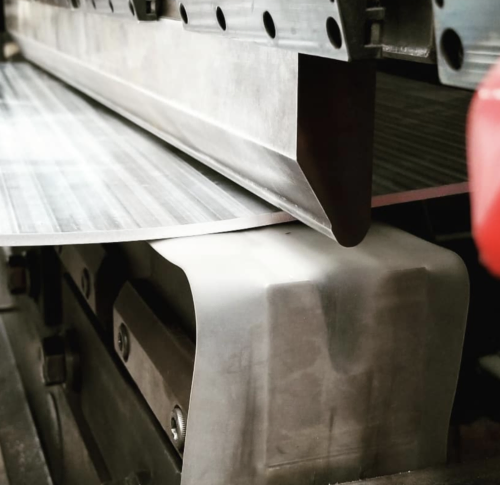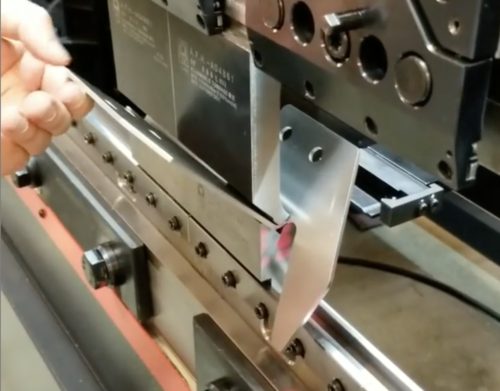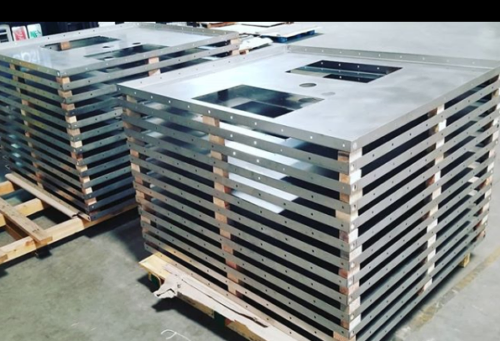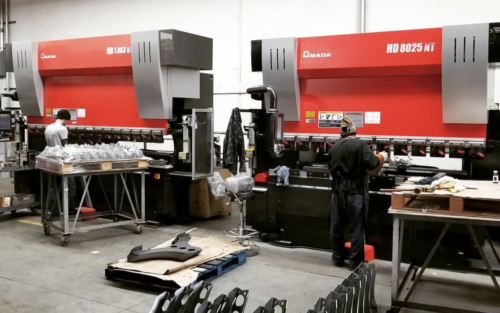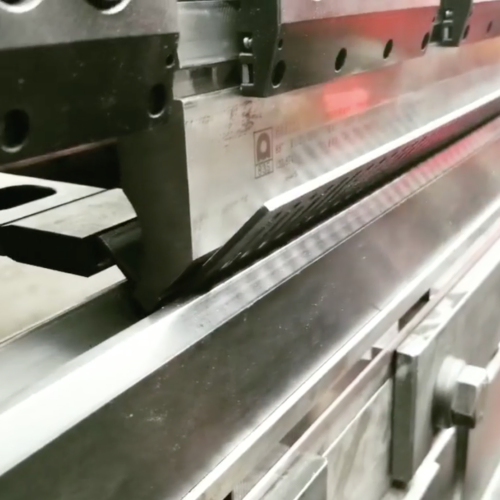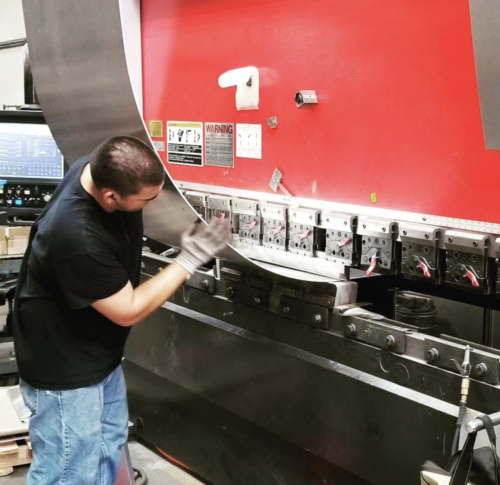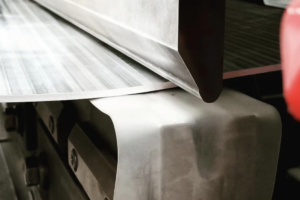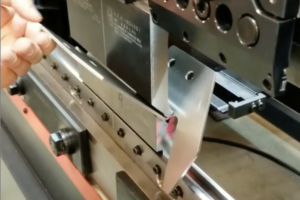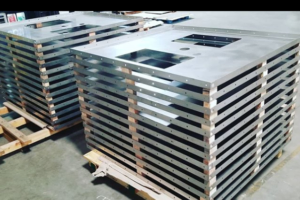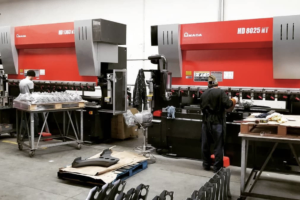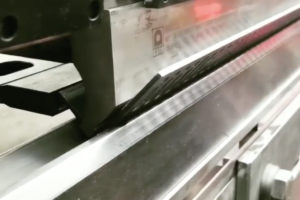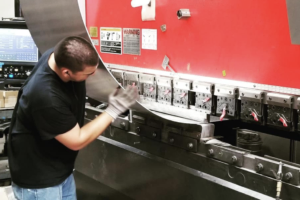Sheet metal acts as a base material for a comprehensive array of product types. As a result, precision sheet metal fabrication capabilities play a role in production processes across industries. At Precision Waterjet & Laser, our skilled technicians bring extensive experience to the table and can handle virtually any sheet metal fabrication project. In our role as a contract manufacturer, our team helps each customer to optimize costs without sacrificing quality.
While waterjet cutting and laser cutting sheet metal is our core competency, Precision Waterjet & Laser maintains a machine shop stocked with the latest advances in CNC machining capabilities. Our team also offers consulting and design services to support customer projects from conception through completion. We can handle volumes ranging from single prototypes to high volumes.
Precision Waterjet & Laser offers a wide portfolio of sheet metal fabrication capabilities, such as:
- Metal stamping
- Punching
- Forming
- Bending
- Anodizing
- Plating
- Painting and coating
Our team is intimately familiar with all proven manufacturing methodologies and we combine this knowledge with our state-of-the-art equipment and technology to produce high-value, high-quality components for use in applications ranging from building and construction to aerospace. Our staff includes AWS-certified welders and skilled machinists that deliver the highest level of quality and integrity on every project we work on.
At Precision, we have built a culture around our commitment to quality. This commitment is demonstrated by our AS9100 and ISO 9001:2015 facility certifications, as well as our ability to meet and exceed the stringent guidelines set forth by other critical industry standards, such as Mil-Spec.
See our full gallery for videos & past projects in
CNC Sheet Metal Fabrication.
Gallery Types of Sheet Metal Fabrication Services
There are many different types of sheet metal fabrication processes. Some of these may include:
- Cutting. While saws have traditionally been used to cut sheet metal, saw-cutting often requires secondary processes to smooth edges and remove burrs. Laser cutting, waterjet cutting, and plasma cutting have become standard in more advanced machine shops for the cleaner cuts they provide.
- Folding. This process uses specialized dies in a brake press to pinch the sheet metal and create creases.
- Machining. Machining is a broad term that refers to any number of reductive machining processes applied to remove material from the workpiece. Machining may include various milling, turning/lathing, drilling, and cutting processes. Advanced machine shops use multi-axis machine tools and machining centers that can conduct numerous machining processes simultaneously.
- Punching/blanking. In this process, a hydraulic press fitted with a custom die cuts a specific shape from a piece of sheet metal. Blanks are often used as the beginning stock material in other fabrication processes.
- Shearing. The shearing process makes long cuts in sheet metal along a specified line.
- Stamping. Stamping uses a specialized die or series of dies to form sheet metal into a specific shape. Unlike reductive machining, stamping typically raises desired shapes and patterns in the metal workpiece rather than penetrating or cutting the metal.
- Welding. Welding fuses two disparate pieces of metal together, often incorporating an additional filler metal to create a better joint.
Materials Used
The two most common types of sheet metal are aluminum and stainless steel, though other types of metal are also available in sheets as an alternative option. Some of the advantages of each metal type are listed below.
- Aluminum. Aluminum features a low weight and good tensile and compressive strength, which makes it an optimal choice for many sheet metal applications. Products made from aluminum sheet metal are used in an expansive range of industries.
- Stainless steel. A highly versatile metal, stainless steel is widely used in sheet metal manufacturing for its durability, corrosion resistance, and strength. Stainless steel is also easy to clean, making it well-suited for hygienic applications.
- Additional metals. Specialized applications may require other types of sheet metal, such as brass, copper, nickel, or titanium. More rarely, some applications may use silver, gold, or platinum.
Wide Range of Industries Served
At Precision Waterjet & Laser, we work with customers across industries. Some of the sectors we frequently work with include:
- Manufacturing
- Food & Beverage
- Storage & Warehousing
- Aerospace
- Automotive & Transportation
- Packaging
- Construction
- Music
- Electronics
Custom Sheet Metal Fabrication Projects
A broad range of industries and applications rely on sheet metal fabrication to produce critical products and components. The versatility and numerous processes included in sheet metal fabrication facilitate the creation of parts of virtually any complexity.
As an industry leader in sheet metal fabrication, the team at Precision Waterjet & Laser can help you keep costs low without sacrificing part quality. To see how our manufacturing solutions can support your organization, please contact us today.

